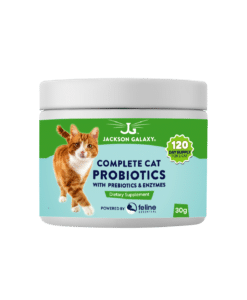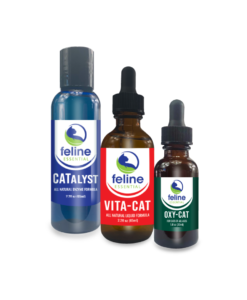Pet food companies and even some veterinarians will suggest that you put your cat on a senior diet as young as 7 years of age.
However, it’s important to question whether this is truly necessary. In reality, 7 years old is not considered senior, even in the medical field. Here’s why you should think twice before making the switch to senior cat food.
The Misconception of Age
First, let’s tackle the age myth. At 7 years, many cats are still in their prime. Labeling them as seniors at this stage can be misleading and unnecessary. Cats can live well into their teens, and the age at which they become ‘senior’ varies greatly. An increasing number of cats are living into their late 20s – with the oldest living cats living to 30 years old. Just like with humans, not all cats age at the same rate. Some cats remain spry and active well into their double digits.
The Protein Problem
A significant issue with many senior cat foods is the reduced protein content. Cats are obligate carnivores, meaning their bodies are designed to thrive on a diet rich in animal proteins. Lowering the protein intake in senior cat foods can lead to muscle wasting and overall poor health. Instead of benefiting our older cats, these diets can hasten the decline in their physical condition.
Lack of Established Nutrient Requirements
According to VCA Animal Hospitals, there are no established nutrient requirements specifically for senior cats. This means that the research backing the formulation of these senior diets is sparse. Without solid evidence, the claims that senior diets are better for older cats are unsubstantiated.
The Marketing Trap
The pet food industry is a lucrative market, and marketing strategies are often designed to appeal to pet owners’ emotions. The idea that our beloved pets need a special diet as they age can be comforting, but it’s essential to look beyond the marketing. Not every cat will benefit from a senior diet, and some may even suffer from the change in nutrition.
What Should You Do?
Here’s the cat tip of the day: Don’t fall for the marketing around senior cat foods. Monitor your cat’s health, and work with your veterinarian to determine the best diet for your cat’s specific needs. Every cat is unique, and their diet should be tailored to their individual health requirements rather than a one-size-fits-all approach.
Senior cat diets are not always necessary and can sometimes be detrimental. Ensure your cat receives a balanced diet rich in high-quality protein to support their health at any age. Always question the motives behind dietary recommendations and prioritize your pet’s well-being over marketing claims. Your cat’s health and longevity depend on it.




Recent Comments